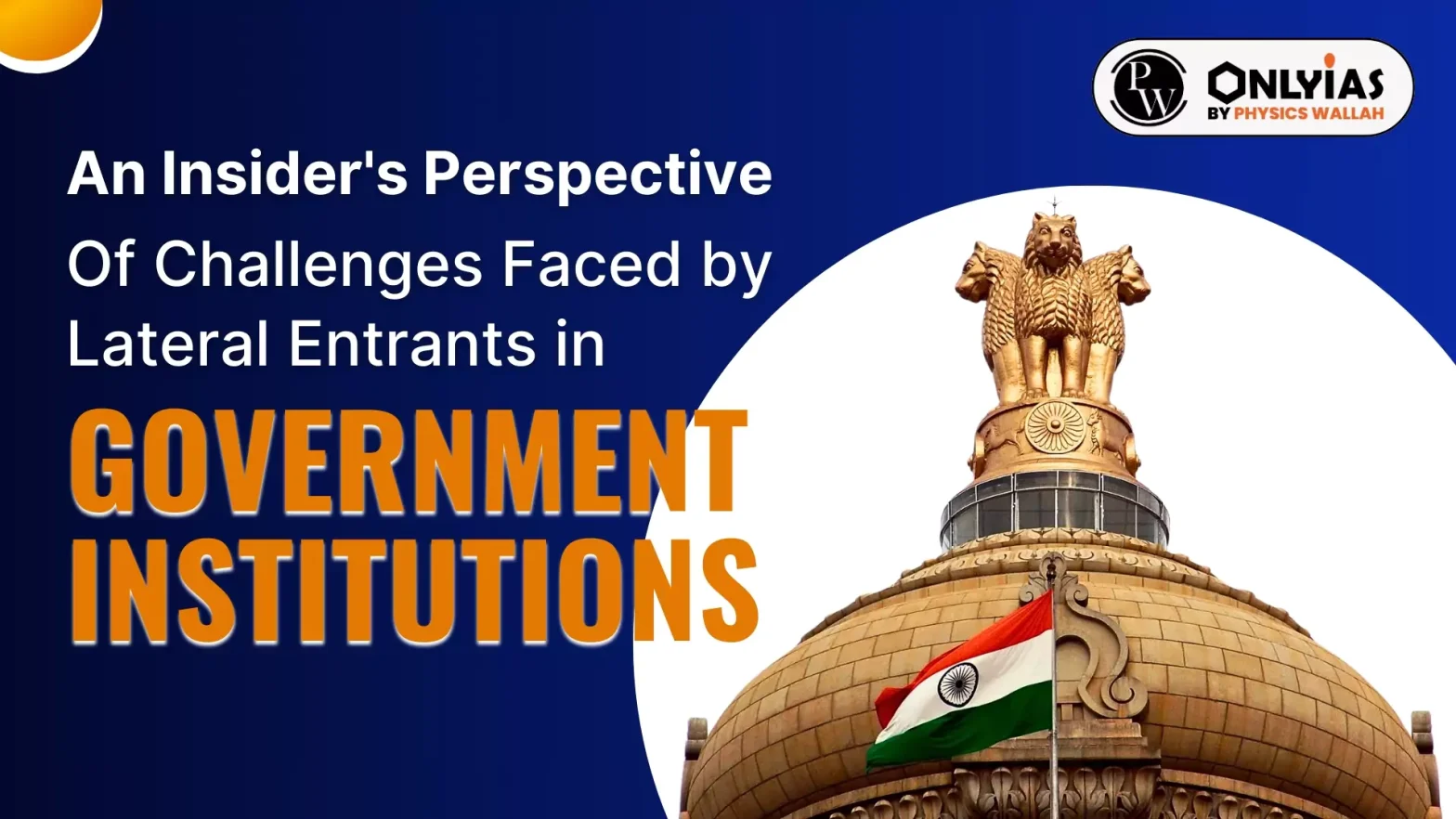Lateral entry into government positions has recently garnered attention as a means to infuse specialised expertise into the public sector. However, lateral entrants have highlighted persistent issues, such as limited career progression and inadequate compensation, suggesting the need for a more structured and inclusive approach to fully realise the potential of this governance reform.
Challenges Faced by Lateral Entrants in Government Institutions
- Discrimination: Lateral entrants often experience subtle forms of discrimination over seemingly small matters like allocation of air purifiers. This can also include anything from being excluded from informal networks to receiving less recognition for their contributions compared to employees who have been with the organisation longer. Such discrimination creates a sense of alienation, making lateral hires feel undervalued and unwelcome.
- Perception Issues: Lateral entrants are sometimes treated as “second-class citizens” within the organisation. This is evident in the way employees are classified, with some being metaphorically referred to as “diamonds” and others as “stones.” This classification system not only demotivates lateral hires but also perpetuates a culture of inequality, where their skills and contributions are not fully recognized or appreciated.
- Lack of Clear HR Policies: The absence of clear and consistent HR policies is a significant challenge for lateral entrants. For instance, they may be required to serve an extended notice period if they wish to leave the job,but can be removed anytime.
- No Performance-Based Incentives: Another major issue is the lack of incentives based on performance. This lack of recognition and reward for high performance discourages them from going above and beyond, leading to a decline in motivation and productivity.
- Inconsistent Leave Policies: Lateral entrants often face differences that the ones appointed through UPSC exam, and usually less favourable, leave policies compared to their counterparts. For instance, Officers appointed contractually under the Flexipool scheme do not receive the allowances and benefits typically afforded to government employees. Additionally, the scheme’s restrictive policies, such as providing only eight days of paid leave annually (recently increased to 18 days)
- System Not Conducive for Career Progression The system in which lateral entrants operate is often not conducive to career progression. They may find that there are limited opportunities for advancement, with promotions and career growth often reserved for long-term employees. This lack of a clear career path can lead to stagnation, where lateral hires feel they are stuck in their roles with little hope of moving up the organisational ladder.
Enroll now for UPSC Online Course
Conclusion
Reforming the bureaucratic framework to better integrate lateral entrants is crucial for enhancing governance in today’s fast-paced world. While the concept of lateral entry has shown success in countries like the US and Singapore, it faces challenges such as outdated practices, lack of recognition, and career progression barriers. To realise its full potential, it is essential for the government to adopt a merit-based recruitment system, clarify policies, and build trust in lateral entrants. Addressing these issues will help ensure that lateral entry becomes a productive and integral part of the public sector.
![]() 3 Sep 2024
3 Sep 2024

